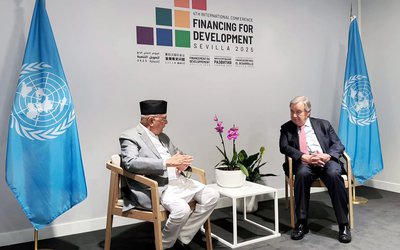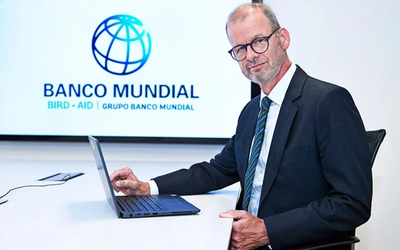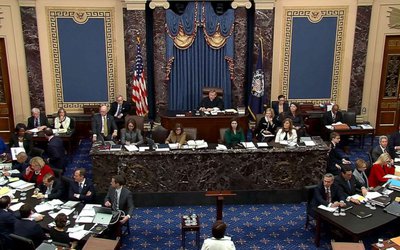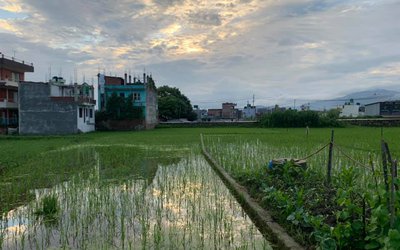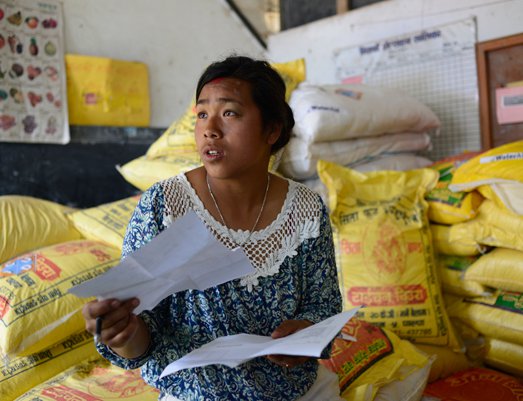
One month ago, a massive earthquake shook Nepal – and set back by decades the country's efforts at lifting its people out of poverty.
The 7.8-magnitude earthquake, which was followed two weeks later by another of 7.3 and hundreds of smaller aftershocks, has now claimed more than 8,000 lives and injured more than 17,000 others.
Nearly a half million homes have been destroyed or rendered uninhabitable.
Stories of incredible resilience
Just two weeks ago I was with a WaterAid team delivering aid supplies – water purification drops, sanitary towels, nappies and bars of soap – and helping document damage to our projects in the country, which in some cases have been running for more than two decades.
With hundreds of thousands of people now in tents or temporary housing, most often wooden frames with corrugated metal for walls and roof, and monsoon rains due to begin next month, the risk of an outbreak of cholera or another waterborne disease is high, and worrying.
In ten days of travelling through some of the hardest hit districts — Gorkha, Kavre, Lalitpur, Bhaktapur — we met family after family who had very little before and even less now.
Their resilience is incredible; nearly everyone we met was already trying to cobble together some sort of shelter and getting back into their terraced fields of corn, wheat and potatoes. But the challenges ahead are massive.
Before these earthquakes, Nepal’s water and sanitation situation was difficult, but improving. One in eight people did not have access to clean water, and two out of three did not have access to a basic toilet.
Still, Nepal's campaign to end the practice of open defecation was progressing. Just one month before the earthquake, WaterAid Nepal had celebrated the Open Defecation Free status of the community of Lele, in Lalitpur district. A tiny village carved into a mountainside, the moment was marked like a wedding, with music and local dignitaries.
Today most of Lele has been flattened. It was incredible to see that many of the latrines – built more recently of cement and brick, rather than the mud-and-stone of the houses – resisted the quake and remained standing, a small contribution toward health and comfort in an otherwise devastated community.
However, the water supply is intermittent and there are fears of contamination. A few cases of diarrhoea were immediately put under monitoring for fear of wider outbreak; even with a month to go before monsoon season, night-time rains had begun and outbreaks of disease are a very real fear.
Without proper sanitation, heavy rains wash bits of faeces into the water supply, allowing waterborne diseases including cholera and typhoid to spread quickly.
There are also a thousand small indignities that arise when you lose just about everything. For girls and young women, who'd only just begun to break community stigma around periods in Lele, that time of the month becomes almost unbearable.
We spoke to girls and young women who’d learned from WaterAid and our partner organisations to sew their own washable cotton menstrual towels, upset to find their supplies lost along with their homes, clothing and everything else.
With no money to spare for disposable sanitary towels, they had to resort to begging for bits of cloth, which for the most part they were unable to change or wash in any sort of privacy. Nor was it clear how they'd collect water or cook for their families when such work is traditionally forbidden during menstruation.
A critical shortfall
The needs now are vast. People need shelter, food, water, sanitation. Schools and clinics need to be reconstructed. Routine healthcare gets neglected in times of crisis, so there will be catch-up required on vaccinations, prenatal care and other more routine matters.
Even those families who have already been able to cobble together temporary shelters face difficult months and years ahead. Money to rebuild homes properly is scarce, as are materials, and labour. Many villages have seen most of their able-bodied men leave for work in the Gulf countries or other parts of Asia; it is the women who are erecting these shelters of wood and metal, and trying to get back into the fields so that next season's crops are not jeopardised.
The earthquake has fallen away from news headlines now, and the UN's emergency appeal for Nepal has raised just 16% of the $423 million (£270 million) required. The UN estimates $58.7 million will be required for water and sanitation systems alone, critical to curbing the risk of outbreaks.
Nepal's government has promised to rebuild its infrastructure within two years, but water and sanitation have not yet been mentioned. Water, sanitation and hygiene programmes are among the clusters in the UN’s flash appeal which are seriously underfunded.
But recovery cannot happen without these services. If this beautiful country is to have a chance at rebuilding, communities will need reliable, safe water points and basic, safe toilets, and families need the tools to keep themselves and their surroundings clean. Restoring health, dignity and livelihoods depend upon them.
Courtesy: WaterAid
http://www.wateraid.org/uk/news/news/the-race-against-time-for-aid-in-nepal
- MELAMCHI WATER SUPPLY: No Interruption During Monsoon
- Jun 25, 2025
- KOREAN RETURNEES: Successful Integration
- Jun 25, 2025
- UPPER TRISHULI-1: Engaging With Local
- Jun 25, 2025
- IME GROUP: Twenty Five Years Of Journey
- Jun 24, 2025
- NEPAL’S AIR POLLUTION: A Growing Health Concern
- Jun 24, 2025

